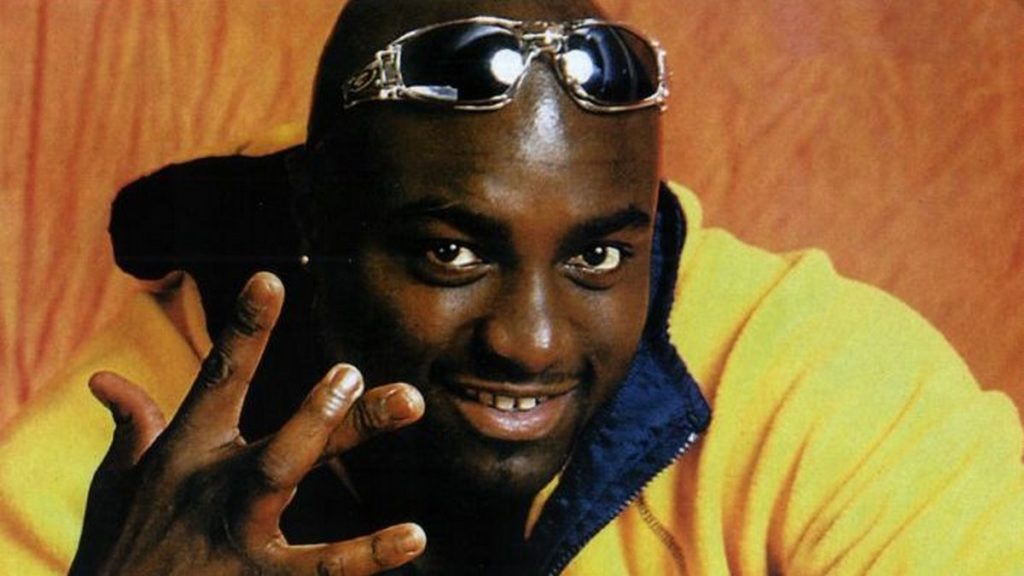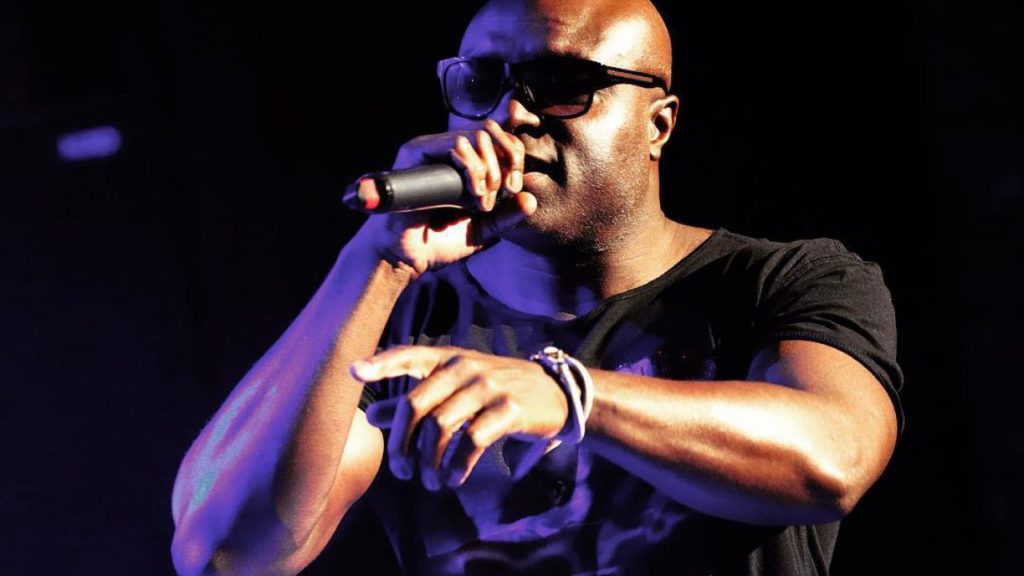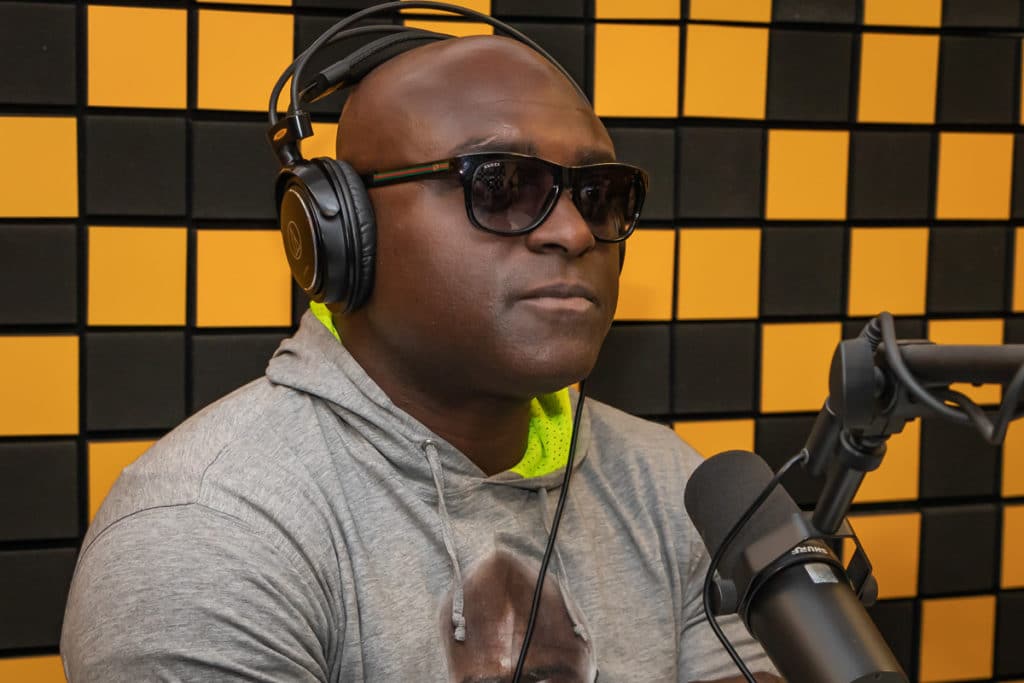Nana (aka Darkman / Nana) is a German rapper and DJ with African roots. Widely known in Europe thanks to such hits as Lonely, Darkman, recorded in the mid-1990s in the Eurorap style.
The lyrics of his songs cover a wide variety of topics, including racism, family relationships and religion.
Childhood and emigration of Nana Kwame Abroqua
The musician was born on October 5, 1969 in the city of Accra (Ghana, West Africa). His real name is Nana Kwame Abroqua. The rapper borrowed his pseudonym from the name of one of the titles awarded to Ghanaian nobles - nana.
The boy grew up in an average African family of those years, in rather poor conditions, until in 1979 his parents secretly immigrated to Germany with their son.
The musician never disclosed the details of this illegal move, but since 1979 he began to live in the city of Hannover.
Even at school, the boy faced the problem of racism, which he had more than once in his musical career. However, in general, his childhood passed in a rather calm atmosphere.
Even then, he became interested in rap, discs with which rapidly penetrated the country from the United States and were in great demand.
Thus, the teenager's taste preferences and view of music were based on a combination of aggressive street American rap and personal observations of the relatively measured lifestyle of the inhabitants of Hanover.
The beginning of an artist's career
In 1988, Nana graduated from high school and was faced with a choice of what to do next. In addition to music, the young man was actively interested in cinema, so the first thing he decided to do was to try his hand there.
Four years after graduation, he managed to star in his first feature film Schatten boxer ("Shadow Boxer"), immediately followed by the second work Fernes Land Paisch ("Far Country Pa").

Despite the fact that the roles in the films were far from minor, they did not give significant success, and most importantly, satisfaction to the novice actor.
Therefore, the young man almost immediately decided to leave his acting career, relying on music. A good command of the DJ remote control allowed him to consistently earn money at night parties in local clubs.
Interestingly, among blacks at that time it was customary to play hip-hop and breakbeat, but Nana chose a completely different path.
Nana's attempts to break people's stereotypes
He deliberately tried to destroy various stereotypes, so at parties he played mainly house music, rave and techno.
At the same time, he regularly encountered the reluctance of visitors and renters of the site to hear such experiments. In addition, some controversy was generated by the reaction to his appearance.
Blacks in Europe then did not hold any public positions and practically did not work in the entertainment sector.
The situation began to change only in the mid-1990s, when a policy of great tolerance was adopted in Europe - black anchormen began to appear on the air of local news.
Now at concerts it was increasingly possible to meet stars with African roots, Nana was among the pioneers.
The club scene gave the aspiring musician a powerful impetus and gave him useful contacts that directly influenced his entire subsequent career.

Here he met the Fun Factory group led by the famous (future) producer Toni Cottura, Bullent Eris and others.
They not only influenced the future style of the musician, but also invited him to join their production project Darkness.
Together with them, Nana released the successful single In my dreams, but decided not to continue cooperation - the Eurodance style, to which the group considered itself, was not close to him.
By 1996, Nana had completely retired from DJ work and decided to devote himself entirely to rap.
The heyday of the popularity of the artist
Booya Music is the first record company with which the rapper signed a full-fledged contract.
A team of producers and sound engineers worked here, whose joint work created a unique symbiosis - topical rap.
The tracks highlighted all social issues and the hit sound of modern dance music, which is in great demand throughout Europe.

The result was the successful single Darkman, recorded in collaboration with Jan Van De Toorn, an old friend of the musician. And after the dance hit Lonely, which entered all sorts of German hit parades, the debut album Nana was released.
The second album, Father (1998), was less successful, more personal and more restrained.
Millennium change - the decline in the popularity of the Eurorap genre
A year and a half later, the first "failed" single I Want to Fly was released, which clearly showed that dance rap was rapidly out of fashion, giving way to aggressive "street" hardcore.
Two albums recorded at the turn of the millennium were never released due to legal problems.
The next album, after a series of failures and three canceled releases, was released only in 2004. Nana remained devoted to style, despite the sharp change in the demands of the public.
Nevertheless, he found his audience, thanks to which his musical career continues to live today.
Latest release #Between Lucifer and God was released in 2017 on the musician's own independent label Darkman Records. The musician successfully tours Europe to this day.



